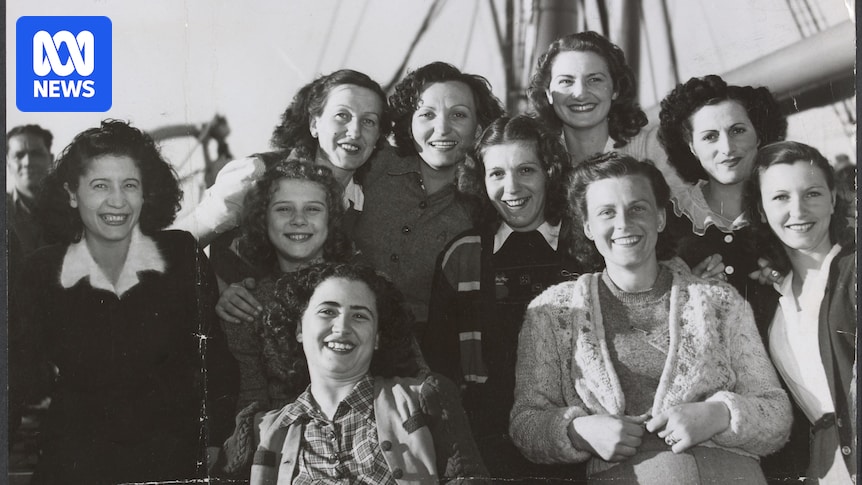
Shannon Swan vividly recalls a day spent at the home of Angelo Pricolo, co-director of the new documentary Signorinella: Little Miss. Observing a group of Italian men, including Pricolo’s father, making wine in the backyard, Swan was captivated. “I didn’t come over to help; I was basically there to drink,” Swan admits. “But I watched them that afternoon, as all of Angelo’s neighbours came around. There was this circle of people, arms waving, telling jokes and laughing, and I was mesmerized by this theatre.”
This impromptu gathering inspired Swan, a seasoned commercial director known for his work on documentaries like Gurrumul, to capture the essence of Italian culture in Melbourne. The result was Lygon St — Si Parla Italiano (2013), a film that explored the impact of Italian immigrants on Melbourne’s culinary and cultural landscape. “The Italian community rarely gets to see themselves on screen, so they flocked to it when it debuted at the Melbourne International Film Festival,” Swan recalls.
From Lygon Street to Signorinella: A New Chapter
The success of Lygon St paved the way for a sister documentary, Signorinella: Little Miss, which shifts the focus to the formidable Italian women who helped shape modern Australia. Co-directed by Pricolo, Swan, and Jason McFadyen, the film celebrates these matriarchs who left everything behind to start anew, often facing significant challenges.
“These women were pioneers in so many ways,” Pricolo explains. “Seventy years ago, a woman’s place in the world was very different to today, so they weren’t just battling all the other hurdles placed in front of Italian immigrants. They often had overbearing fathers, too.”
The Voices Behind the Story
While Anthony LaPaglia narrated Lygon St, Signorinella is voiced by Greta Scacchi, who brings warmth and authenticity to the film. “We had so much archival footage, and it was beautiful the way Greta could tie all of that together with the warmth of her voice,” Pricolo says. Scacchi’s involvement was contingent on her mother’s approval, which she received after a heartfelt viewing together.
“When we were pitching it to her, she loved the idea but had to go home and show it to her mother, who’s 94 years old,” Swan says. “They watched it together, absolutely loving it. Then Greta said, ‘I’m doing it.'”
Celebrating the Indomitable Spirit of Italian Women
Signorinella: Little Miss is a vibrant tribute to the Italian women who played crucial roles in Australia’s development. From working in cane fields during the war to founding businesses and entering politics, these women left an indelible mark. The documentary features influential figures such as fashion icons Carla Zampatti and Mariana Hardwick, politician Franca Arena, and singer Tina Arena.
Pricolo’s own family history is woven into the narrative. “Lygon St featured Pricolo’s dad. This time, his mum pops up in Signorinella. ‘It seemed just and fair,’ Pricolo says. ‘Mum and dad both came out in 1950. I can never go back to then and know what it was like for them, but I can feel elements of it, how that translated into what it was like for me at school in the 70s.’
“I would go to school with these sandwiches with this big, thick bread, and dad would grow silverbeet or spinach in the garden, and that’s what they put in it,” Pricolo recalls. “The Aussies just didn’t know what it was. They’d take one look at me and say, ‘Oh, he’s got the green stuff again’. And that was what it was like.”
A Broader Message of Unity and Diversity
In the context of ongoing debates about immigration, Signorinella: Little Miss offers a refreshing perspective. It highlights how immigration has enriched Australia, challenging the notion that it is detrimental to the nation. “We’ve always said that the film represents the migrant story,” Swan says. “That’s not just the Europeans, like the Italians and the Greeks. It’s every generational shift, from the Vietnamese onwards, who have contributed to making us such a multicultural place.”
Pricolo echoes this sentiment, emphasizing the universal nature of the immigrant experience. “It’s the classic immigration story. Everyone’s suspicious at first. What are you doing here? What are you eating? And slowly it all integrates into this big melting pot.”
As Signorinella: Little Miss continues to resonate with audiences, it serves as a reminder of the strength and resilience of those who have shaped the diverse fabric of modern Australia. The documentary not only honors the past but also inspires future generations to appreciate the richness of multiculturalism.







